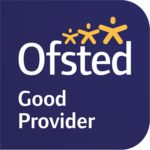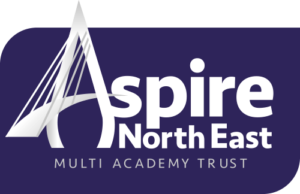Maths Curriculum Overview
Knowledge Organisers
Curriculum Aim
Aim
Here at Southmoor Academy, we aim to securely equip all of our students for life beyond school as successful, confident, responsible and respectful citizens. We believe that education provides the key to social mobility and our curriculum is designed to build strong foundations in the knowledge, understanding and skills which lead to academic and personal success. We want our students to enjoy the challenges that learning offers.
Our aims are underpinned by a culture of high aspirations. Through developing positive relationships, we work towards every individual having a strong belief in their own abilities so that they work hard, build resilience and achieve their very best.
Curriculum Intent
Intent
The curriculum includes formal teaching through subject areas, assemblies and extracurricular activities. We regularly review content to ensure we continue to meet our curriculum aims. The Mathematics curriculum is planned to enable all students to develop skills in the following areas:
- Number
- Algebra
- Ratio, proportion and rates of change
- Geometry and measures
- Probability
- Statistics
All students are taught in a way which supports them to develop fluency, reason mathematically and solve problems linked to real life situations, by applying the knowledge and skills they have developed over time.
Throughout our programmes of study, every attempt is made to make explicit links to careers and the world of work. In addition to subject specific links, we aim to explicitly reinforce the skills and aptitudes which support employers say are important in the workplace;
- Resilience (Aiming High, Staying Positive, Learning from Mistakes)
- Collaboration (Teamwork, Leadership, Communication)
- Creativity (Originality, Problem Solving, Independent Study)
The British values of democracy, the rule of law, individual liberty, and mutual respect of those with different faiths and beliefs are referenced and reinforced.
Curriculum Sequence & Structure
Sequence and structure
Our curriculum is split into Key Stage 3 (Years 7, 8 & 9), Key Stage 4 (Years 10 & 11) and Key Stage 5 (Years 12 & 13)
At Southmoor we sequence the curriculum to allow a ‘stage not age’ approach. This ensures that all pupils can be challenged in relation to their ability and reduces the impact of pupil variation within each year group. Each stage is linked to both the previous and the next stage. This allows for both retrieval and extension within all lessons and helps all pupils to progress.
The expectation is that the majority of pupils will move through the programmes of study at broadly the same pace. However, decisions about when to progress will always be based on the security of pupils’ understanding and their readiness to progress to the next stage. Pupils who grasp concepts rapidly wiil be challenged through being offered rich and sophisticated problems before any acceleration through new content. Those who are not sufficiently fluent with earlier material will consolidate their understanding, including through additional practice, before moving on.
Pupils can sit external examinations in
- GCSE Mathematics
- Level 2 Further Mathematics
- Level 3 Mathematical studies
- GCE AS/A level Mathematics
- GCE AS/A level Further Mathematics
The Math’s department uses the whole school lesson structure to support consistency. This is used to connect previous learning to new situations, it delivers content through worked examples and models that students can refer to and it consolidates understanding and application through the use of problem solving/functional questions.
Where appropriate mathematics lessons include multi step/problem solving and/or functional questions.
Brief Overview of Curriculum Content for Each Term
Autumn term Spring Term Summer Term Yr 7 - Numbers & the Number System
- Checking & Approximation
- Calculating
- Exploring FDP
- Calculating FDP
- Manipulating Algebra
- Solving Equations
- Probability
- Sequences
- Investigating Angles
- Proportional Reasoning
- Transformations
- Statistics
- Statistic Graphs
- Measuring Space
- Calculating Space
- Visualising & Construction
Yr 8 - Numbers & the Number System
- Checking & Approximation
- Calculating
- Exploring FDP
- Calculating FDP
- Manipulating Algebra
- Solving Equations & Inequalities
- Probability
- Sequences
- Algebraic Graphs
- Investigating Angles
- Statistics – Averages
- Statistic – Graphs
- Calculating Space
- Proportional Reasoning
- Visualising & Construction
Yr 9 - Numbers & the Number System
- Checking & Approximation
- Calculating
- Exploring FDP
- Calculating FDP
- Manipulating Algebra
- Solving Equations & Inequalities
- Probability
- Sequences
- Calculating Space
- Statistics – Averages
- Statistic – Graphs
- Algebraic Graphs
- Transformations
- Investigating Properties of Shapes
- Proportional Reasoning
- Visualising & Construction
Yr 10 - Numbers & the Number System
- Checking & Approximation
- Calculating
- Exploring FDP
- Calculating FDP
- Manipulating Algebra
- Solving Equations & Inequalities
- Probability
- Sequence
- Investigating Properties of Shapes
- Analysing Statistics
- Calculating Space
- Proportional Reasoning
- Algebraic Graphs
- Transformations
- Vectors
- Solving Equations & Inequalities
- Proportional Reasoning
- Conjecturing
Yr 11 - Solving Equations & Inequalities
- Proportional Reasoning
- Conjecturing
- Investigating Properties of Shape
- Calculating
- Solving Equations & Inequalities
- Transformations
- Proportional Reasoning
- Sequences
- Solving Equations & Inequalities
- Algebraic Graphs
- Analysing Statistics
- Algebraic Graphs
- Vectors
- Exam Preparation
Year 7 KS3 Curriculum
Year 8 KS3 Curriculum
Year 9 KS3 Curriculum
Year 10 KS4 Curriculum
Year 11 KS4 Curriculum
Year 12 & 13 KS5 Curriculum
How Our Curriculum Caters For SEND Students
How does our Curriculum cater for students with SEND?
Southmoor is an inclusive academy where every child is valued and respected. We are committed to the inclusion, progress and independence of all our students, including those with SEN. We work to support our students to make progress in their learning, their emotional and social development and their independence. We actively work to support the learning and needs of all members of our community.
A child or young person has SEN if they have a learning difficulty or disability which calls for special educational provision to be made that is additional to or different from that made generally for other children or young people of the same age. (CoP 2015, p16)
Mathsematics teachers are responsible for the progress of ALL students in their class and high-quality teaching is carefully planned inclusively and in accordance with information on learning passports and EHCPs; this is the first step in supporting students who may have SEND. All students are challenged to do their very best and all students at the Academy are expected to make at least good progress. In Mathematics teachers will use pupil SEND passports to tailor learning for specific needs.
Specific approaches which are used within the curriculum areas include:
- Mastery approach to planning
- A focus on embedding key concepts into long term memory.
- Exposing students to mathematical problems in everyday life and teaching student’s problem-solving strategies.
- Seating to allow inclusion
- Resources are accessible and their use explained by the teacher
- Displays and visual learning tools are used where necessary
- Multi-sensory approaches
- Where appropriate support from additional adults is planned to scaffold students learning
- Group work and discussion
- Clear teacher/student communication
- Immediate feedback using mini whiteboards and live marking to help students to make progress.
- Independent study/homework.
- Reduce the reliance on memory and embed a deeper understanding of mathematical concepts.
How Our Curriculum Caters For Disadvantaged Students
How does our curriculum cater for disadvantaged students and those from minority groups?
As a school serving an area with high levels of deprivation, we work tirelessly to raise the attainment for all students and to close any gaps that exist due to social contexts. The deliberate allocation of funding and resources has targeted the closing of attainment gaps in our drive to ensure that all pupils are equally successful when they leave the Academy. More specifically within the teaching of Mathematics, we;
- Work to identify barriers, interests and what might help each pupil make the next steps in learning.
- Provide targeted support for under-performing pupils during lesson time, in addition to revision lessons outside school hours.
- Use strategies best suited to addressing individual needs, rather than just fitting pupils into their existing support strategies
- Provide opportunities for these pupils to attend external events to help build cultural capital
How We Implement Our Curriculum Effectively
How do we make sure that our curriculum is implemented effectively?
- The Math’s curriculum leader, LPs and TLR holders are responsible for designing the Math’s curriculum and monitoring implementation.
- The curriculum leader’s monitoring is validated by senior leaders.
- Staff have regular access to professional development/training to ensure that curriculum requirements are met, including half termly subject knowledge enhancement.
- Effective assessment informs staff about areas in which interventions are required. These interventions are delivered during curriculum time to enhance pupils’ capacity to access the full curriculum.
- Curriculum resources are selected carefully and reviewed regularly.
- Assessments are designed thoughtfully to assess student progress and also to shape future learning.
- Assessments are checked for reliability within departments and across the Trust.
- We have staff who mark for exam boards and provide vital CPD to the rest of the department to ensure reliability of data.
- Gap analysis spreadsheets are used to identify areas of development for students and the Math’s department.
How We Ensure The Curriculum Has Impact
How do we make sure our curriculum is having the desired impact?
- Examination results analysis and evaluation
- Termly assessments-analysis and evaluation meetings
- Lesson observations
- Learning walks
- Book scrutiny
- Regular feedback from Teaching Staff during department meetings
- Regular feedback from Middle Leaders during curriculum meetings
- Pupil Surveys
- Parental feedback
Additional Curriculum Resources & Information




